INDEX
Welcome to the underwater world!
Medical Check-up
Snorkel Diver Course Completion
Snorkeling Equipment
Using Your Equipment
Snorkeling Skills
Rules and Manners
Safety Management
Transform into a Fish on your Holidays
|
Safety Management |
|
■Problems During Your Course
If, by chance, you should suddenly feel unwell or experience other problems, immediately signal your instructor who will help you and if needed, stop the snorkel dive.
|
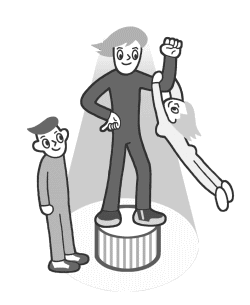
Safety first
|
|
■Buddy System
Always go snorkeling with at least a dive buddy, if not in a group of three. Never go alone. This is called the buddy system. By going together, you can watch out for each other and enjoy the ocean safely.
|
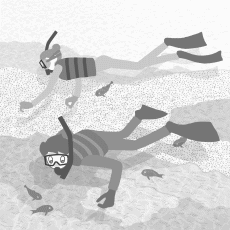 |
|
■Snorkeling Point Selection
Wind and current have a great influence on the areas where we snorkel. When conditions are good for surfing, they are poor for snorkeling. Calm waters are best. Since ocean conditions are fluid, it is best to have a backup point selected in case winds and currents are not advantageous to snorkeling.
|
Calm waters are best |
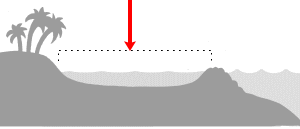 |
|
|
Waves have their origins primarily in wind, and while there may be no wind blowing near the coast, there may be winds blowing in the open sea which can cause high waves to break on the shore. As well, as waves approach the shore, they collapse, causing undertow and rip currents. In this region - the surf zone – it is easy to have your feet pulled out from under you, especially with all your equipment on, so caution is required.
Especially for beginners it is highly recommended you choose your snorkeling point in consultation with your instructor.
|
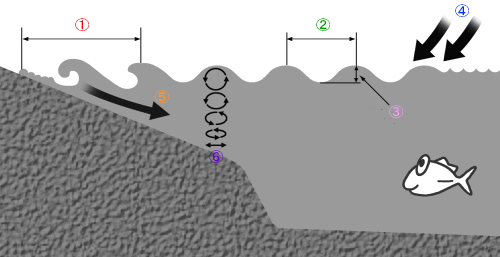 |
|
① Surf Zone ② Wave Length ③ Wave Height ④ Wind ⑤ Undertow ⑥ Stirred Silt |
|
■Dangerous Snorkeling Points
Winds that follow lengthy, unbroken coastlines create long shore currents. So far as shallows exist near the shore, undertows are created, and at breaks in the shallows, strong rip currents are created. As well, where there are groupings of large rocks, complex water channels are created which require caution.
|
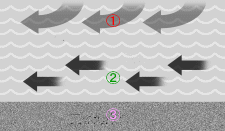 |
① Wind
② Ocean Currents
③ Lengthy Coastlines |
|
|
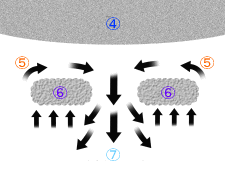 |
④ Coast
⑤ Currents
⑥ Reef
⑦ Rip Currents |
|
|
■Stopping or Changing Your Plans
There are times when we need to change our plans due weather or ocean conditions. Safety must be your first concern, so when conditions are unsafe, you need to stop your plan to snorkel. It’s a good idea to always have alternatives in mind.
|
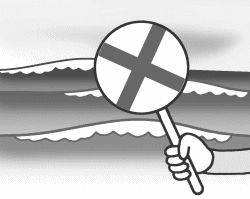
When ocean conditions are poor, cancel the dive. |
|
■Emergency Plan
To deal with emergencies that can occur while snorkeling, we plan for them in advance. As well, we prepare emergency contact information and equipment and familiarize ourselves with local emergency services.
We should always have a first aid kit at the ready.
|
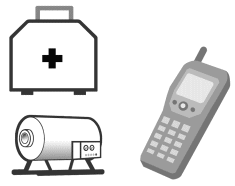 |
Check
the emergency
contact |
|
|
|
  |
|

